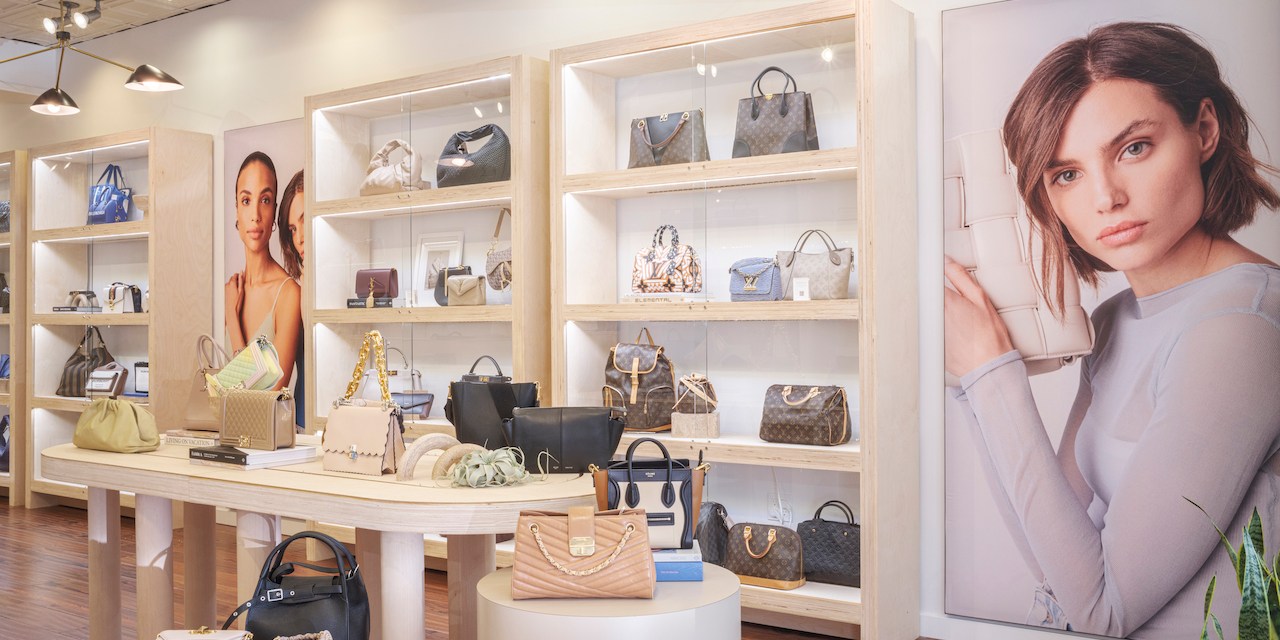Rebag founder Charles Gorra on building automated resale tools

As the resale boom continues, more players are trying to differentiate themselves from the pack.
This week, second-hand luxury marketplace Rebag announced the closing of a $35 million Series E funding round, the company’s largest round to date. The company, founded in 2014, plans to use the new capital to expand its proprietary selling tech called Clair Technology Suite. The tools include Clair AI, an image recognition technology that instantly recognizes and price handbags, along with product trading feature Clair Trade.
While other resale sites like Poshmark and Depop operate on a peer-to-peer basis, Rebag buys customers’ products, authenticates them and lists them for sale. Rebag’s site currently lists more than 25,000 products available for sale, which includes handbags, jewelry, and watches. Rebag also has seven stores in total, opening its newest location in Beverly Hills, Los Angeles in November. The stores sell curated bag selections, along with buying back or exchanging customers’ products.
According to a recent McKinsey survey, the luxury resale market is expected to double by 2030. Rebag founder Charles Gorra says the digital portion of this market is still a largely untapped market, and is why the company is investing in in-house authentication technology it can license out later.
In an interview with Modern Retail, Gorra discussed Rebag’s AI-based selling platform, the challenges of the luxury resale market and the future of digitizing second-hand product listings. This interview has been lightly edited for length and clarity.
You’ve been building out your virtual authentication tools for years. Has the ongoing interest in resale influenced your roadmap?
Obviously, in the past two years there’s been a lot of interest around secondhand goods. This has been largely thanks to trends like consumers looking for more value, affordability and a growing interest in sustainability.
With so many people at home, we got more sellers looking to liquidate their luxury goods. The boom helped us triple business year-over-year compared to pre-Covid levels. We want to build on that momentum by making selling to us into a “one-click” process.
Ad position: web_incontent_pos1
Many resale platforms are building authentication and listing tools. How does Rebag’s process differ from peer-to-peer resale sites?
Our business model revolves around a fully managed marketplace. We do all the liaising between the seller and buyer — including the purchasing, authentication, selling and customer service. So we have a different approach from peer-to-peer marketplaces, which rely on sellers to upload and manage listings.
And because we primarily focus on premium leather goods, like designer handbags, which require a lot of trust to part with. Our average order value is about $2,000 across 50 to 60 brands — much steeper than other resale platforms — so authentication is a priority.
How does your owned tech speed up the product buyback process?
Our AI-based software enables instant product buyback — whereas typically you’d have to wait for someone to give you feedback on photos before offering a rate. Through our Clair platform, sellers can upload the product images, send it to our warehouse and we pay them within days. So far, the software covers about 80% of quarries, and so we want to continue strengthening its capabilities. Right now, the tech works for handbags, but we’re developing it for other categories we’ve added, like watches and jewelry.
With Clair Trade, customers get flexibility to sell and shop as they browse. For example, a Rebag app user can upload products and create on-the-spot swapping depending on the value of their cart. So far, one out of five of our users have been using it. A lot of what we’re doing with this funding is building on these Clair AI and Trade suite of tools.
Where do your brick-and-mortar stores fit into this software expansion?
We’re integrating the software into all our stores because offline is still a major portion of resale. All our stores have free-standing Clair kiosks where customers can use the selling tools themselves and drop off their items to sell. Through stores, we’re able to purchase customers’ products instantly and without an appointment.
Ad position: web_incontent_pos2
Since the pandemic, we’ve closed three stores and opened three new ones. We’re still cautious based on coronavirus variants. But in the long term, we’re still interested in brick and mortar.
Do you see Clair’s tools being used by other retailers and brands?
As many resale marketplaces are finding, inventory sourcing is hard especially when demand spikes. We have to make it as easy as possible for someone to part with a wardrobe item they love. For us, we’ve found that our secondhand sellers tend to be affluent, first-hand luxury shoppers who want to switch out styles every season. On the other hand, our shoppers are younger and want an affordable way to buy a luxury bag (and often finance it through an Affirm payment plan). We see the Clair API being licensed by other marketplaces, luxury brands and department stores.

